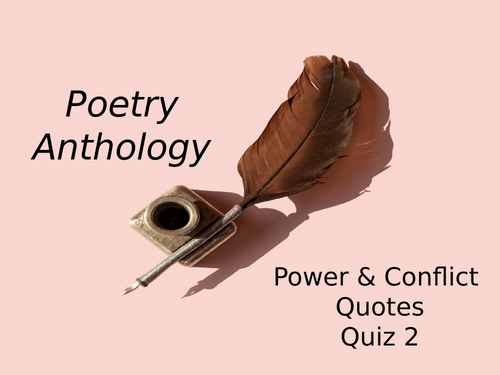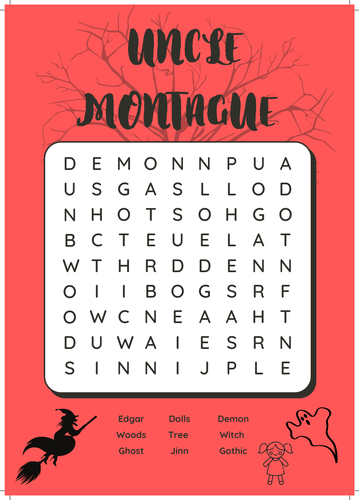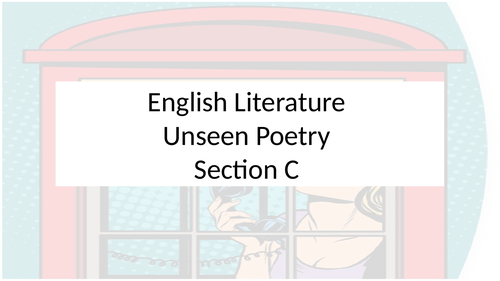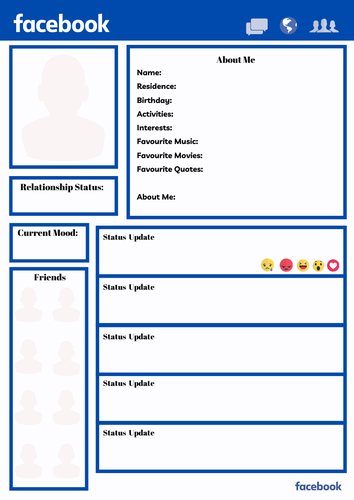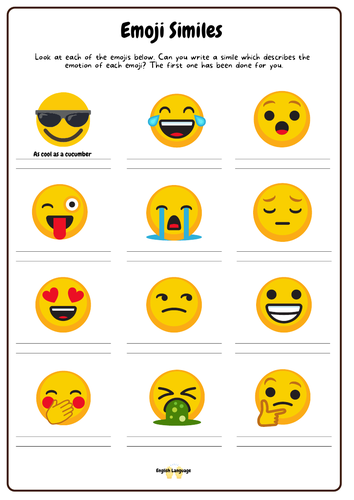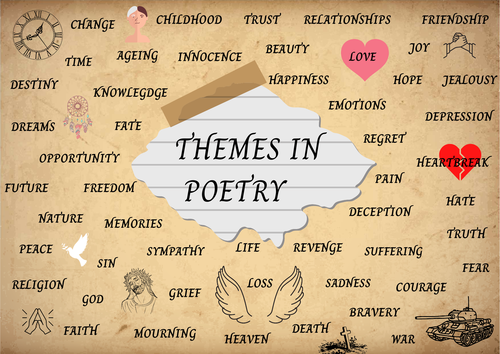647Uploads
224k+Views
55k+Downloads
English

Reading Book Tasks
A range of different tasks for children to complete using their favourite reading book!

English Literature Poetic Technique Language Techniques Table - Unseen Poetry
Overview:
Find the devices in the poem
Evidence(Use an appropriate quotation from the poem)
Analyse(Why has the poet decided to use this technique? How has it improved the poem?)

GCSE Revision English Poetry Anthology Quotes: Power & Conflict
A great lesson starter to get learner’s to recall the key quotes from the poetry anthology.

GCSE English Poetry Anthology: Power & Conflict Quotes Quiz 2
A fifteen question multiple choice quiz. Students will be given a each from each poem and must write down on the white board which poem it is from. Answers are given on the PPT once they have answered the question.
I also have an alternative quiz with other key quotes from the anthology which you can download for free:
https://www.tes.com/teaching-resource/poetry-anthology-power-and-conflict-quotes-quiz-12636653

Primary School Resource: What is the Corona Virus?
Worksheets to help young children learn about the Coronavirus.

Uncle Montague's Tales of Terror Lesson Starter: Word Search
An ideal lesson starter. Who can complete the word search in the quickest time?

Unseen Poetry SMILE Structure Response Classroom Poster English Literature GCSE - Answering Q1
An A3 poster which will help students in knowing what to include in their Q1 exam question response.

Unseen Poetry GCSE English Literature Lesson - Marking Poetry Responses Using a Marking Guide.
This PPT gives an overview of the Unseen Poetry exam. The students are then shown a marking guide for Q1 and will use this to mark three student’s responses: Grade 5 to Grade 9.
This lesson was created using my own ideas and other ideas/resources from free PPTs on TES and the CGP Unseen Poetry Guide. Thankyou for sharing your work with the TES community.

Uncle Montagues Tale's of Terror: Skating Creative Writing POV Task English Literature
A creative writing task based on the last short story in the novel.
**Task: **
In this chapter, the story is told from the point
of view of a third person narrator and focuses
on a character named Diane Parrington.
Rewrite this short story from the point
of view of the young man who Diana meets on
the iced lake. You need to write in the first
person and the story will end exactly the same
way as it does in Priestley’s book: with the
young man disappearing under the cracking
ice.

3 Lessons - GCSE English Poetry Section C Question 1 & 2 - Planning and Answering the Exam Questions
Using the poems First Ice and Farewell My Love, this three lesson PPT is designed to help students to plan and answer Question 1 & 2 of Unseen Poetry.
Please note that some of the information on the slides were sourced from other PPTs on the internet. Thank you for sharing your work with the teaching community.

An Inspector Calls GCSE Revision Cards Task English Literature
I created this task for an Inspector Calls revision lesson. The learners were asked to write an overview of each character and their key quotes on the back of the cards. There are also revision cards on the plot summary, themes and context for them to fill in. I have also included blank revision cards. This was to refresh their knowledge in preparation of their mock exams.
Four cards per sheet.
Print double sided on short flip edge.

Homeschooling: Storybook Activities
Make homeschooling fun! Grab a storybook and complete the activities.

GCSE English Literature. Character Facebook Profile Analysis Template. Social Media Activity
Character Analysis Worksheet.
The learner will pick one of the characters from a book they are reading and then create a Facebook profile for that character. They will fill in all of the information that they know about them from the book and add other additional presumed information of their own.
They will also write a status that sums up what that character is feeling at a particular moment in the book.
A fun character analysis activity.

Emoji Similes - English Figurative Language Worksheet
This is an English activity which can be used with primary and secondary aged learners. The learner will look at each of the 12 emojis and will be asked to write a simile which describes the emotion of each emoji.
A fun English task!

English Activity: Facebook Character Profile Template
Get your learners to pick one of the characters from a book they are reading and then create a Facebook profile for that character. They will fill in all of the information that they know about them from the book and add other additional presumed information of their own.
They will also write a status that sums up what that character is feeling at a particular moment in the book.
A fun character analysis activity.

GCSE English Literature. DNA by Dennis Kelly. Character Facebook Profile Analysis Template
This is a worksheet that is designed to be used alongside the play DNA.
The learner will pick one of the characters from the play and create a Facebook profile for that character. They will fill in all of the information that they know about them from the play and add other additional information of their own.
They will also write a status that sums up what that character is feeling at the end of each act in the play.
A fun character analysis activity.

GCSE English Literature: A3 Poetry Themes Poster. Classroom Display. Revision Guide.
A3 Poetry Themes Poster

WhatsApp Messaging Template/Worksheet English Literature. Social Media Whats App Character Convo
WhatsApp Social Media Template.
An A4 worksheet that learners can use in English to show a conversation between two fictional characters.
2 different designs in two different colours - black and grey.

Emoji Emotions: Character Feelings English Literature Worksheet
Learners will use the worksheet to describe how their book’s character is feeling by drawing the emotion on the emoji’s face. Following this, they will write down as many adjectives as they can think of, around the emoji, which describe these feelings.




